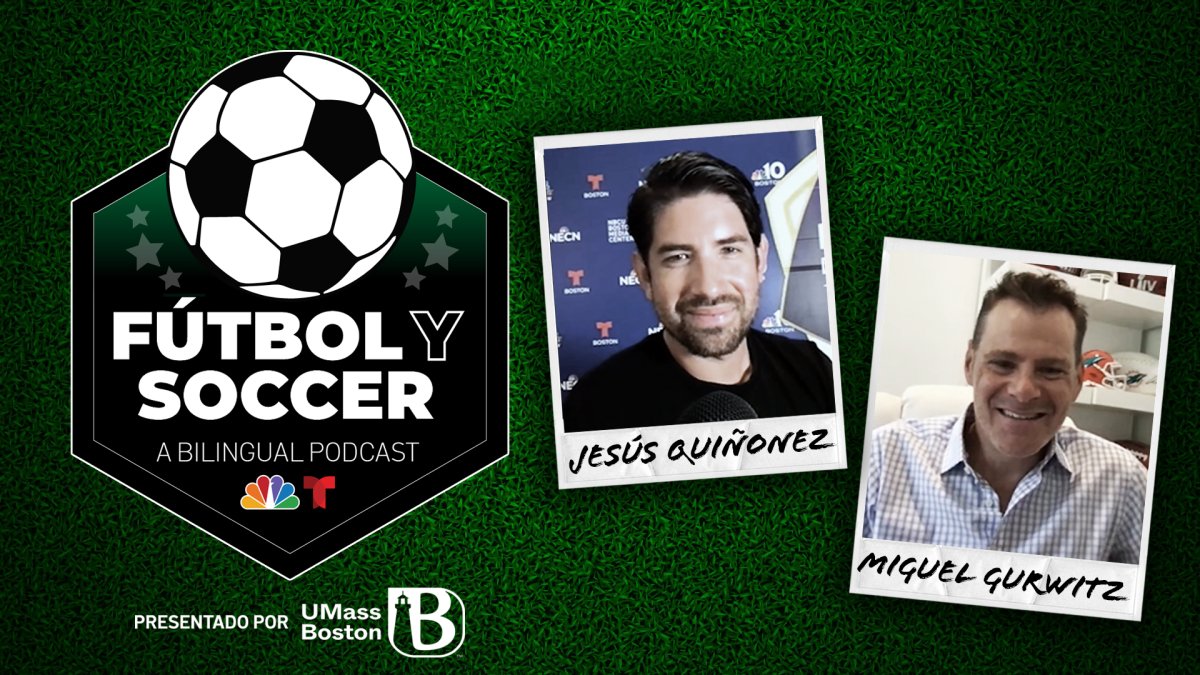
Emmy award-winning sports journalist Miguel Gurwitz joins Jesús Quiñónez in this episode of “Fútbol y Soccer” to talk about his previous experience in Qatar and what it’s going to be like covering his seventh FIFA World Cup.
World Cup stadiums in Qatar will be alcohol-free, FIFA’s officials announced on Friday.
The news came 48 hours before the host country is set to open competition against Ecuador on Sunday and marks the end of a long-standing conflict between the Qatari government, FIFA officials and traditional World Cup sponsors.
Stream NBC10 Boston news for free, 24/7, wherever you are.
FIFA released a statement explaining that “following discussions between the country authorities” and the federation, they had decided to “focus the sale of alcoholic beverages on the FIFA Fan Festival, other fan destinations and licensed venues.”
They went on to say that Bud Zero, the nonalcoholic option, would remain available at all World Cup stadiums in Qatar.
Get updates on what's happening in Boston to your inbox with our News Headlines newsletter.
This decision -- while not entirely surprising considering the Qatari government’s known position on alcohol -- puts a strain on FIFA’s $75-million partnership with Budweiser. This flashpoint also supports the notion that FIFA has seemingly lost jurisdiction over many of the aspects of this upcoming World Cup.
Here’s a closer look at what alcohol sales will look like in Qatar following Friday’s announcement.
Is alcohol allowed in Qatar?
Alcohol isn’t outright banned in Qatar. However, its consumption comes with several caveats depending on licensing, religion and residency status and overall intoxication levels.
Outside of the World Cup, drinking in public and public intoxication are prohibited and punishable by law. Furthermore, alcohol is only available to those 21 and older through a licensed hotel, restaurant or bar.
These laws -- originated from the country’s strict observation of Islamic customs -- are enforced by the monarchy.
Why is alcohol banned at stadiums of the 2022 World Cup?
In the 12 years since Qatar was awarded the 2022 World Cup, FIFA has faced no shortage of challenges to this bid, ranging from the humanitarian crisis of migrant workers, brutal weather conditions, lack of existing soccer infrastructure and of course, the anticipated tension of a global event in a country defined by strict religious guidelines. Chief among those tensions is the massive amounts of alcohol that’s so synonymous with the World Cup stretch.
Qatari officials have assured FIFA that many of these laws would be relaxed during the World Cup, particularly for foreigners. However, their instructions to local police to enforce with a “soft touch” remained up for interpretation and held a shadow of concern for uninformed visitors.
As part of these exceptions, beer was expected to be available to fans three hours before matches and for an hour after the final whistle. Friday’s announcement reverses this decision.
According to The New York Times, this shift in policy came directly from the Qatari royal family and was described as “nonnegotiable.” Sheikh Jassim bin Hamad bin Khalifa al-Thani, brother of the ruling emir, reportedly grew concerned that excessive, visible drinking could lead to security issues and cause disruption for the local population.
What does Budweiser stand to lose in this decision?
The beer company finds itself in a sticky situation.
Budweiser, and its parent company AB InBev, reportedly pay $75 million to be the exclusive beer provider for the World Cup, with the expectation that they service FIFA’s partners and hospitality guests.
While the company has yet to confirm whether or not these terms will be upheld, they said their focus remains on “delivering the best possible consumer experience under the new circumstances.”
Publicly, the company attempted to maintain a light tone. In a since deleted tweet, Budweiser chimed in with a simple “Well, this is awkward…”
Whatever friction results from this decision made in the 11th hour could impact the future of this partnership, which is set to expire after this World Cup. However, the opportunity for exclusive rights to the 2026 World Cup in North America could prove too large to pass up, despite the conflict in Qatar.
Where is alcohol available in Qatar?
Per FIFA’s announcement, alcohol will remain available at the FIFA Fan Festival, other fan destinations and licensed venues.
Inside the stadium, the traditional red Budweiser branding is being removed and will likely be replaced with unbranded options to house Bud Zero.
What are the punishments related to alcohol during the World Cup?
While the change in policy certainly reduces the chance of public drunkenness within the stadiums, experts on the matter would be quick to caution foreigners to remain vigilant in following Qatari guidelines.
Radha Stirling, founder and director of the Detained in Dubai, a legal aid group designed to assist fans facing legal issues at the World Cup, said Qatar’s “arbitrary enforcement of the law creates confusion and risk to visitors.” Stirling went on to say that in both Dubai and Qatar, complaints are often raised by locals who are “offended” by a visitor's actions.
Violation of these policies could result in a fine and/or jail time.

